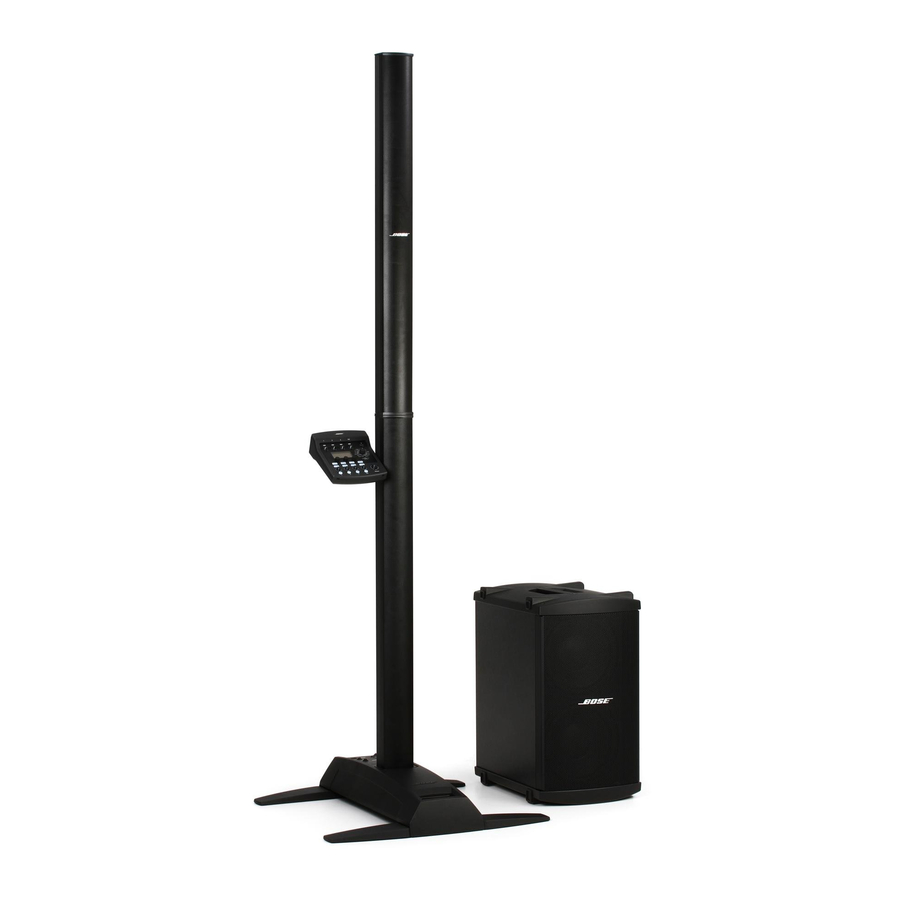Bose L1 Model II Manuale d'uso - Pagina 14
Sfoglia online o scarica il pdf Manuale d'uso per Amplificatore Bose L1 Model II. Bose L1 Model II 28. Portable line array systems
Anche per Bose L1 Model II: Manuale d'uso (32 pagine), Manuale d'uso (32 pagine), Scheda tecnica (8 pagine), Scheda tecnica (8 pagine), Manuale di applicazione (13 pagine), Manuale (15 pagine)

Controls, Indicators and Connections
Channel 1/2 connections and controls
14
Input ..........................................Combination XLR (mic) or ¼-inch phone connector
Trim 0 to 12 ...............................Controls the input level.
Signal/OL ..................................Indicates signal presence (green) or signal overload (red).
Phantom Off/+24V ....................When depressed turns on the +24V phantom power. The
Preset Select ............................Selects a comprehensive channel equalization, which results
Line OUT ...................................XLR output for sending to external recording equipment or to
Insert .........................................A TRS line input/output for connecting to external
Note: Use a stereo plug in the Insert jack for connecting send and return signals. The ring
connects to the "Send"; and the tip connects to the "Return".
unbalanced (line) input. Inserting a male XLR connector
sends the input signal to a balanced microphone
preamplifier. Inserting a ¼-inch phone plug sends the input
signal to an unbalanced high-impedance line-level circuit
which is suitable for most instruments such as active or
passive guitars or basses, keyboards, etc. Both inputs can
be adjusted with the Trim control.
LED lights when phantom power is on.
in a "normal" or useful sound when the product is used with
commonly available equipment such as microphones,
musical instruments or sound processors. The selectable
settings from 00 to 99 apply only to channels 1 and 2.
Settings are identical on both channels but are
independently selected. See the preset guide inside the PS1
power stand panel door for a list of available presets.
conventional sound mixing consoles (for using the Bose
approach in large venues).
equipment, such as digital effects processors.
